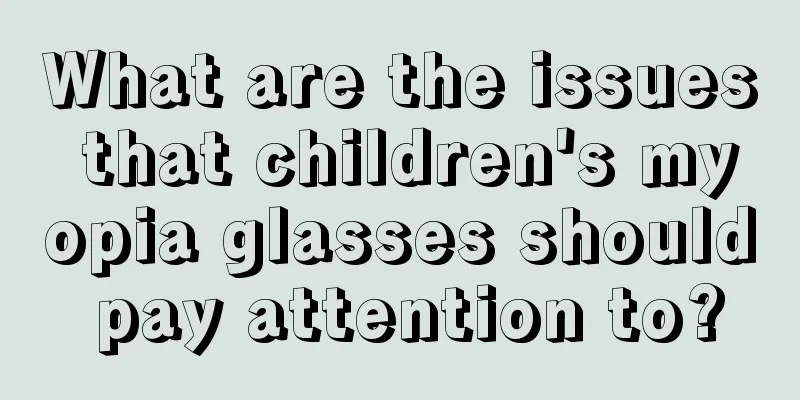Why is my baby's stool green?

|
It is the common wish of many parents that their baby can have a healthy body. However, there will always be some health problems in the baby's growth process. Among them, the baby's preference for food and whether the baby's gastrointestinal tract is normal can be accurately judged through the baby's stool. Many parents are always in a panic when they encounter symptoms such as green stools in their babies. They don’t know what’s going on and how to regulate it. Let’s understand what’s going on when the baby’s stool is green. Why is my baby's stool green? 1. Babies may spit up milk or have green stools when they catch a cold or have indigestion. If you cannot determine which situation is causing it, you need to see a doctor to check the stool. If there is an infection, active treatment is required. If the test results are normal, the child may have indigestion or a cold abdomen. 2. When the child is not full, the child's gastrointestinal movement is too fast due to hunger, and the stool becomes green and watery. 3. If you think your baby eats a lot, it is because of indigestion. Give her Mommy Love. 4. In addition, for the health of the baby, it is necessary to take in enough iron. If the baby who eats milk powder containing iron cannot fully absorb the iron in the milk powder, the stool will be yellow-green, the white particles in the stool will be larger, and it will be more likely to have a foul odor. 5. Some babies often excrete a small amount of green vegetable puree in their stool when they first add vegetable puree. Some parents often think it is indigestion and stop adding vegetable puree. In fact, this phenomenon is common when healthy babies change their food. Suggestions: Observing the stool characteristics of infants and young children can help you understand their digestive status. If the baby's stool has a strong smell, it means that the protein is not digested properly. At this time, you should reduce the amount of milk appropriately or dilute the milk. If there is a lot of foam in the stool, it means that carbohydrates are not digested properly, and you must reduce or even stop feeding starchy foods. If the stool looks creamy, it indicates fat malabsorption and the intake of fatty foods should be reduced. There are many causes of diarrhea in infants and young children, which can be roughly divided into two categories: One type is caused by non-infectious factors, such as improper diet or weather changes, which can cause diarrhea. Diarrhea caused by diet includes eating too much or too little; changes in food ingredients, adding too much sugar (conversely, too little sugar intake can easily cause constipation); adding complementary foods too quickly, causing discomfort, weaning children in hot weather, etc. Weather changes, such as children catching a cold, can cause intestinal dysfunction; hot weather can reduce the secretion of gastric acid and digestive enzymes, and indigestion can cause diarrhea. The other type is caused by infectious factors, such as unclean feeding utensils or food used by children, which allow bacteria to enter the body and cause diarrhea; long-term use of broad-spectrum antibiotics can cause intestinal flora imbalance and cause diarrhea; when children suffer from acute upper respiratory tract infection, pneumonia, otitis media, urinary tract infection, pharyngitis and other diseases, they can all develop diarrhea due to fever and the influence of pathogen toxins. The gastrointestinal system of children is not yet fully developed, so they can be supplemented with more beneficial bacteria, such as Mami Love and Biostime. Both Mami Love and Biostime contain beneficial bacteria (not medicine) that regulate the gastrointestinal system. They can make diarrhea less loose and constipation less dry. If a breastfed baby has diarrhea, do not wean him/her easily. At this time, you can shorten the time of each feeding and let the baby eat the first half of the milk. Because the first half of breast milk contains more protein, it is easy to digest and rich in nutrition, while the second half contains more fat and is difficult to digest. If necessary, the mother can drink a large glass of light salt water half an hour to an hour before breastfeeding to dilute the milk and then breastfeed the child. The above is an introduction to why the baby's stool is green. After understanding it, we only know that the baby's stool is green is generally caused by indigestion, so you must pay special attention in the process of taking care of the baby, and make adjustments to the diet. Don't feed the baby too much at one time. If necessary, take the baby to the hospital for examination and treatment. |
<<: How to prevent baby's mouth peeling
Recommend
Diet therapy for tracheitis in children
Tracheitis in children mostly occurs secondary to...
Can sinusitis in children cause coughing?
Children are prone to sinusitis, so they need to ...
What to do if your baby has urinary tract infection
Women have shorter urethras and are often more su...
What should babies eat if they have a bad stomach?
Some mothers are confused as to why their babies ...
What should I do if my child has herpes in his throat?
If a child has herpes in his throat, it is probab...
Does noise affect babies?
When a new life is born, it brings joy to the fam...
Mydriasis treatment for children is very effective
Children's eye health is very important. If a...
Can a two-year-old baby eat yogurt?
There are many kinds of milk on sale in supermark...
What to do if your baby has flatulence and constipation
Because the baby is still relatively young and th...
Treatment of white tongue coating in babies
We all know that many babies have white tongue co...
What is the reason why baby’s nose is blocked at night?
Due to the development of various aspects of toda...
What to eat for babies with stomach problems
Babies are the hope of their parents, and taking ...
The child's shoulders twitched
Many parents find some abnormal conditions in the...
Why does my baby drool so much?
Drooling is a very common phenomenon for children...
What calcium tablets are good for teenagers to take for calcium supplementation
Teenagers are in an important stage of physical g...









